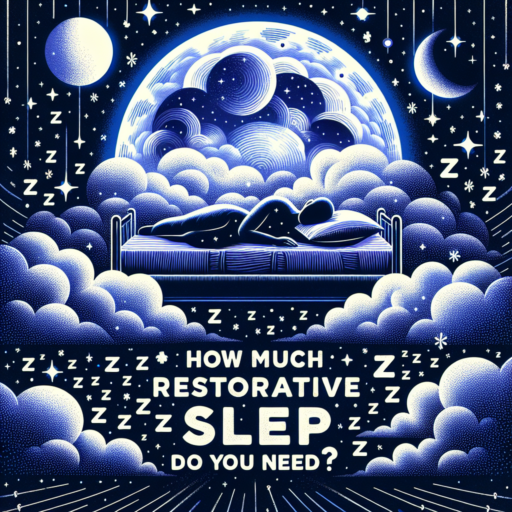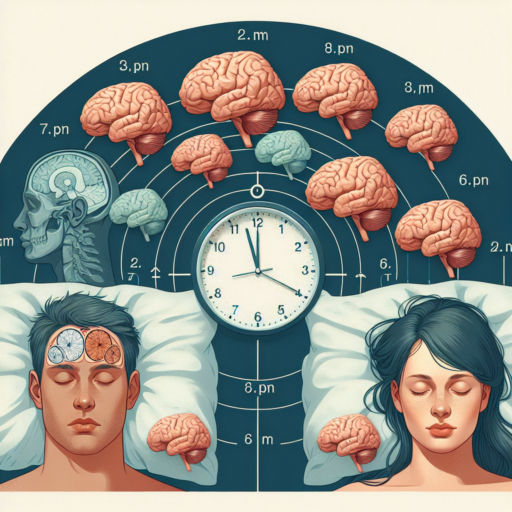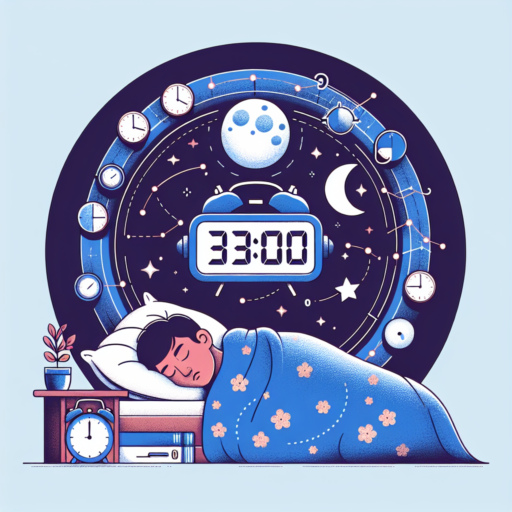What percentage of sleep should be restorative?
Understanding the percentage of sleep that should be restorative is critical for optimizing health and well-being. Sleep is not just a single, uniform state but a complex interaction of various phases, each playing a crucial role in our physical and mental restoration. Restorative sleep largely encompasses deep sleep and REM (Rapid Eye Movement) sleep. These phases are essential for memory consolidation, mood regulation, and physical recovery.
Experts suggest that 20-25% of an adult’s sleep should be deep sleep, which is the most rejuvenating phase. This translates to approximately 1.5 to 2 hours of deep sleep for a typical 8-hour sleep cycle. During this stage, the body repairs tissues, strengthens the immune system, and builds bone and muscle. In addition, though harder to quantify, a significant portion of REM sleep, which accounts for about 20-25% of total sleep in adults, is also crucial for cognitive functions and emotional well-being.
However, the exact percentage of restorative sleep can vary significantly from one individual to another, influenced by factors such as age, lifestyle, and health conditions. For instance, infants require much higher percentages of restorative sleep, including both deep sleep and REM sleep, to support their rapid mental and physical development. Monitoring sleep patterns through wearable technology or sleep apps can help individuals assess whether they are getting enough restorative sleep and make necessary adjustments to their sleep hygiene.
No se han encontrado productos.
Is 4 hours of REM sleep enough?
Understanding the critical role of REM (Rapid Eye Movement) sleep in our nightly sleep cycles is essential for addressing the question, Is 4 hours of REM sleep enough? This phase is crucial for various aspects of health and well-being, including cognitive function, emotional regulation, and memory consolidation. Typically, REM sleep comprises about 20-25% of an adult’s nightly sleep cycle, equating to around 90-120 minutes for a healthy adult sleeping 7-8 hours. Therefore, achieving 4 hours of REM sleep might seem significantly above what is usually recommended.
However, it’s vital to consider how sleep needs can vary dramatically from one individual to another. Various factors, such as age, lifestyle, genetic makeup, and overall health, can influence how much REM sleep a person requires. While the general guideline suggests a smaller fraction of our sleep time should be in the REM stage, some people might naturally experience or require more REM sleep to function optimally. This brings us to question whether exceeding the standard recommendation provides additional benefits or possible health implications.
Factors Influencing REM Sleep Duration
- Age: Newborns and young children experience much more REM sleep, which is believed to support brain development.
- Stress and Emotional State: High stress can alter REM sleep duration, sometimes increasing it as the brain processes emotions.
- Health Conditions: Certain disorders, such as depression, can result in increased REM sleep, affecting overall sleep quality.
Navigating the intricacies of REM sleep and its adequacy involves a personalized approach. While accumulating 4 hours of REM sleep might be beneficial and even necessary for some, it could potentially signal sleep disturbances or health issues in others. Observing one’s overall sleep quality and daytime functioning can offer more insight into whether their REM sleep duration is optimal for their health needs.
How much sleep do you need to restore?
Understanding the right amount of sleep you need is essential for restoration, both mentally and physically. The amount of sleep necessary can vary significantly from person to person, but experts generally recommend between 7 and 9 hours of sleep per night for most adults. This range is considered optimal for promoting wellness and restoration.
Age plays a crucial role in determining how much sleep you require. For instance, children and teenagers need considerably more sleep than adults to support their rapid mental and physical development. Specifically, teenagers should aim for 8 to 10 hours, while younger children may need up to 14 hours of sleep per day, including naps.
Your lifestyle and health also influence your sleep needs. High-stress levels, physical activity, and certain health conditions can increase the amount of sleep you need for adequate restoration. Listening to your body and adjusting your sleep schedule to accommodate these factors is vital for optimal health and well-being.
What hours of sleep are the most restorative?
Understanding the most restorative hours of sleep is crucial for maximizing the benefits we get from rest. The body goes through different sleep cycles, each serving distinct recovery functions. Generally, these cycles are experienced when we adhere to the natural circadian rhythm, aligning with the common wisdom that the sleep before midnight is particularly rejuvenating.
During a typical night, an individual moves through various stages of sleep, from light sleep to deep (slow-wave) sleep, and finally, REM (Rapid Eye Movement) sleep. Deep sleep, which predominantly occurs in the first third of the night, is often considered the most restorative phase. This period is crucial for physical recovery, consolidation of memories, and hormone regulation. Thus, the hours spent in deep sleep, often before midnight, are especially beneficial.
Moreover, the timing and duration of sleep can significantly impact its restorative quality. Experts often emphasize the importance of consistent sleep patterns and the value of sleeping during the night when darkness promotes the release of melatonin, a hormone critical for initiating the sleep cycle. Achieving sufficient deep and REM sleep typically involves uninterrupted sleep periods that span from 7 to 9 hours for most adults, ideally starting between 9 PM and 11 PM to synchronize with the body’s natural rhythm.




